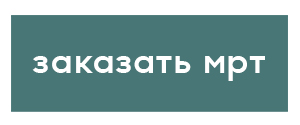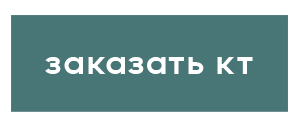Meningitis is a severe acute infectious disease that causes inflammation of the membranes of the brain and spinal cord. According to WHO statistics, more than 2 million people worldwide suffer from meningitis annually, 1 in 10 patients with meningitis dies due to the rapid development of the disease and its complications, and every fifth patient becomes disabled, up to motor and intellectual insufficiency.
Specialists distinguish three main types of meningitis: bacterial, viral, and fungal. The most common and most dangerous of them is bacterial meningitis (meningoencephalitis). Its causative agents are meningococcus bacteria, pneumococcus, and Haemophilus influenzae. Mortality in severe purulent bacterial inflammation of the brain membranes, especially in young children, can reach 30-60%! Less often, the causative agents can be listeria, staphylococcus, enterococcus, and other microorganisms.
Most cases of meningococcal infection in Kazakhstan are caused by meningococcal serotypes A, B, C, and Y. In 2018, an outbreak of meningitis occurred in Kazakhstan in late spring – early summer, with 54 cases recorded in different regions of the country. Unfortunately, 12 people died, including five young children.
Infection Pathways
Meningococcal infection is characterized by seasonality: winter-spring period. But individual outbreaks of the disease also occur in the summer when the “bathing” season begins.
The source of the disease is only a person, sick or carrier of the infection. Infection occurs, in most cases, by airborne droplets (when coughing, sneezing, talking). Infection can also occur through the fecal-oral route (the source of infection is dirty hands) and through household contact (through items used by the patient – shared cups, spoons, toothbrushes). Infection can also be “caught” after bathing in contaminated water bodies.
The most dangerous sources of infection are patients with meningococcal nasopharyngitis, as they intensively release bacteria into the external environment when coughing and sneezing. Therefore, meningitis outbreaks most often occur in organized groups where there is high density, people have a lot of contact, and poor ventilation in the premises. Children under 5 years old (especially in the first year of life), teenagers, and elderly people are at risk of meningitis.
Disease Course
The incubation period of the disease is from 2 to 20 days, on average 2-4 days. Meningococcal infection can have different clinical variants, from asymptomatic carriage and nasopharyngitis to generalized forms (purulent meningitis, meningoencephalitis with damage to many organs and systems), meningococcemia. The latter form is the most severe, characterized by lightning-fast progression and a high probability of death within hours of the onset of the disease.
Bacterial meningitis usually develops rapidly, within 1-3 days, acute nasopharyngitis develops with a high body temperature (up to 38°C). The pathogen’s entry into the bloodstream (meningococcemia, meningococcal sepsis) is accompanied by a sudden chills attack, sharp and unbearable headache, and body temperature rising to 40°C.
The main signs of meningitis are:
- Intense headache that may intensify with light and sound exposure, pronounced lethargy;
- Body temperature rising to 40°C, which practically does not subside with ordinary antipyretic drugs;
- Vomiting that does not bring relief;
- Neck muscle rigidity, when it is very difficult or impossible for a patient lying on their back to press their chin to their chest;
- Patients lie on their side, with legs tucked and head thrown back, the so-called “dog pose”;
- In severe cases, there are consciousness disorders, vision, speech, and movement impairments;
- In meningococcemia, a rash appears in the first day of the disease in the form of spots 5 to 20 mm in size on the abdomen, shins, buttocks, heels. The appearance of hemorrhagic rash has a poor prognosis;
- In babies under one year, fontanelle bulging is possible, children cry and squeal strongly.
Viral meningitis (or serous) proceeds easier, the disease develops 3-4 days after infection, initially resembling an ordinary respiratory infection, but then symptoms quickly increase and worsen.
Meningitis Prevention
No one is insured against meningitis (meningoencephalitis). But it can be prevented!
To reduce the risk of disease, it is necessary to observe general preventive measures:
- Timely treat all infection foci in the body: dental diseases, sinusitis, tonsillitis, bronchitis, as meningococcus can remain in some people’s bodies for a long time in the form of carriage;
- Observe personal hygiene rules, always wash hands with soap;
- Try not to contact patients with meningitis (and generally with feverish, coughing people), as there is an infection risk;
- If you have been in contact with a meningitis patient, you need to undergo laboratory examination and/or take antibiotics as prescribed by an infectious disease specialist. Do not refuse the doctor’s recommendations!
- Consume only vegetables and fruits washed with clean water, drink only bottled water. If not possible, boil water before consumption;
- Do not swim in unknown and possibly contaminated water bodies;
- Lead a healthy lifestyle, strengthen immunity.
Vaccination is the most effective way to protect against the most dangerous form of bacterial meningitis.
Currently, high-quality vaccines have been developed against meningococcus, pneumococcus, and Haemophilus influenzae. Vaccination prepares the body in advance to meet the infection. If a vaccinated person gets meningitis, the disease develops less rapidly, and the person has a better chance of complete recovery. In some cases, the vaccinated body can independently overcome the infection.
In Kazakhstan, vaccinations against pneumococcus and Haemophilus influenzae are included in the National Vaccination Calendar for children and are completely free.
Meningococcal vaccination is carried out voluntarily or for special medical indications. Meningococcal vaccines in Kazakhstan are administered in private medical organizations.
Recommendations for Tourists and Pilgrims
- If you are planning a tourist trip abroad, it is recommended to study the epidemiological situation in the destination country, find out which vaccinations you should have, including meningitis. For example, visiting the USA requires being vaccinated against meningococcus;
- Pilgrims planning to perform Umrah and Hajj in Saudi Arabia must be vaccinated and have a meningococcal infection vaccination certificate. The pilgrim must be vaccinated within the last 3 years and at least 10 days before arriving in Mecca.




